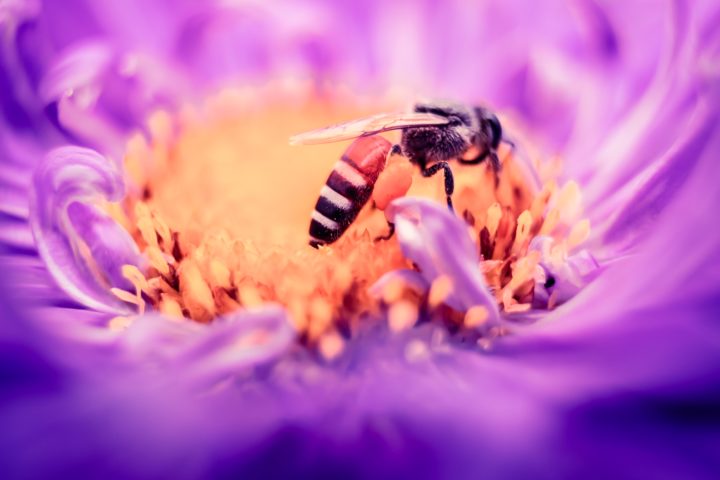Howdy folks! We’re off to a fantastic week so far as the weatherperson has forecasted a good chance of sun for much of the week and weekend! I don’t know about you, but that is music to my ears. After the cold and wet winter we’ve had thus far, I am ready for some sunshine. The only downfall for me, like so many other Victorians, is pollen! It’s everywhere and causing many of us unwanted itchy, red, and watery eyes. What exactly is pollen? And why does pollen cause allergies in our eyes? We have got the answers to your burning questions in this week’s blog post, so read on allergy sufferers as you might find some relief at the end of this write-up! Enjoy.
What Is Pollen?
Okay, so before we delve into what you can do about your allergy to pollen, it’s important to understand what pollen is. Pollen is extremely important to our survival as a species, so even though it may be causing you great discomfort, it does have a purpose. And that purpose is plant reproduction! How Stuff Works summarizes how pollen helps plants to reproduce:
Pollen is a fine powder made up of microspores produced by male plants. It is also called flower sperm. Pollen carries the male gametes (reproductive cells) of seed plants. Seed plants include both conifers (plants whose seeds grow inside cones) and flowering plants. Some species self-pollinate when the pollen moves from the male part of the plant (the stamen) to the female part of the plant (the pistil). Cross-pollination occurs when pollen travels to the pistils of other plants, either in the wind or with birds and insects that it sticks to when they land on plants to drink their nectar. The birds and insects travel from plant to plant, leaving pollen on them and pollinating them.
Due to cross-pollination, pollen is essentially everywhere in the air outdoors. Pollen is an extremely fine ‘powder’ and can easily track indoors through windows, doors, on humans, or pets. Air filtration can reduce pollen indoors, but it’s important to know what your specific filtration method’s coverage area is. If only part of your home’s air quality is being purified then pollen may still be present.
Why Pollen Causes Allergies
Our bodies are designed to stop foreign stimuli from entering the body. Although, pollen is not harmful, for some of us our genetic makeup deems pollen to be an unwanted intruder. So, for those who suffer from pollen allergies, when their immune system detects pollen, the body goes into removal mode. Antibodies are released and attach to the pollen in an effort to flush out the foreign stimuli, the bodies removal process is through the nose, skin, and mucous membranes. The Dartmouth Undergraduate Journal of Science explains how “One of the chemicals secreted by the mast cell is histamine. Histamine constricts the airways causing difficulty in breathing. It also expands the vessels leading to fluid leakage.” This is exactly why pollen allergy sufferers experience symptoms of red, watery, itchy, or burning eyes. It is your eyes’ way of ridding itself of what it deems to be an unwanted guest.
What Can Pollen Allergy Sufferers Do?
It is first important to understand what you are allergic to and this can be done in combination with self-awareness, seeing your optometrist, and possibly an allergist. Once you know, you can do something about it. Unfortunately, once you have developed a pollen allergy it is not likely going to go away, so it is important to equip your self with symptom-relieving tools.
Tips For Pollen Allergy Relief
- Be aware of the pollen count in your particular area. Victoria BC’s pollen report can help locals know when pollen is particularly high so they can avoid being outdoors.
- Change your clothes once you get home to ensure any pollen that has settled on your clothing is not going to further irritate you or spread elsewhere.
- Use a HEPA certified filtration system to filter out any pollen and other unwanted allergy causing air-borne particles.
- Vacuum your home regularly.
- Use medication for relief. An antihistamine or decongestant pill and or eye drops can be used. An anti-inflammatory eye drop can also be employed for severe allergies. In general, you will see that many oral allergy medications will also treat eye symptoms due to allergies. However, if your eyes are particularly affected speak to your eye doctor, he or she can prescribe medicated eye drops that can help you go one with your day.
- Contact lens wearers should wear glasses if possible and allow extra time for the eyes to rest. It is also important that wearers practice good hygiene especially if suffering from pollen allergies as pollen can stick to the surface of your contacts. Always wear your lenses only for as long as recommended. If you are having issues with your lenses it is important to speak to your eye doctor who can assess your specific needs and concerns and change the brand or type of lens as well as recommend additional steps to help your eyes feel comfortable.
We Know You Want To Rub Your Eyes
Dr. Sharma always reminds his patients to NOT rub their eyes, even though it may be very tempting. This just makes things worse. He also recommends cold compresses for fast relief. Lastly, put your antihistamine drops and artificial tears in the fridge, this keeps them cool and extra soothing for when it’s time to use them.
If you have more questions about allergies book an appointment with Dr. Sharma. Appointments can be made by giving us a call or easily booking online!
We love helping our patients see comfortably!
